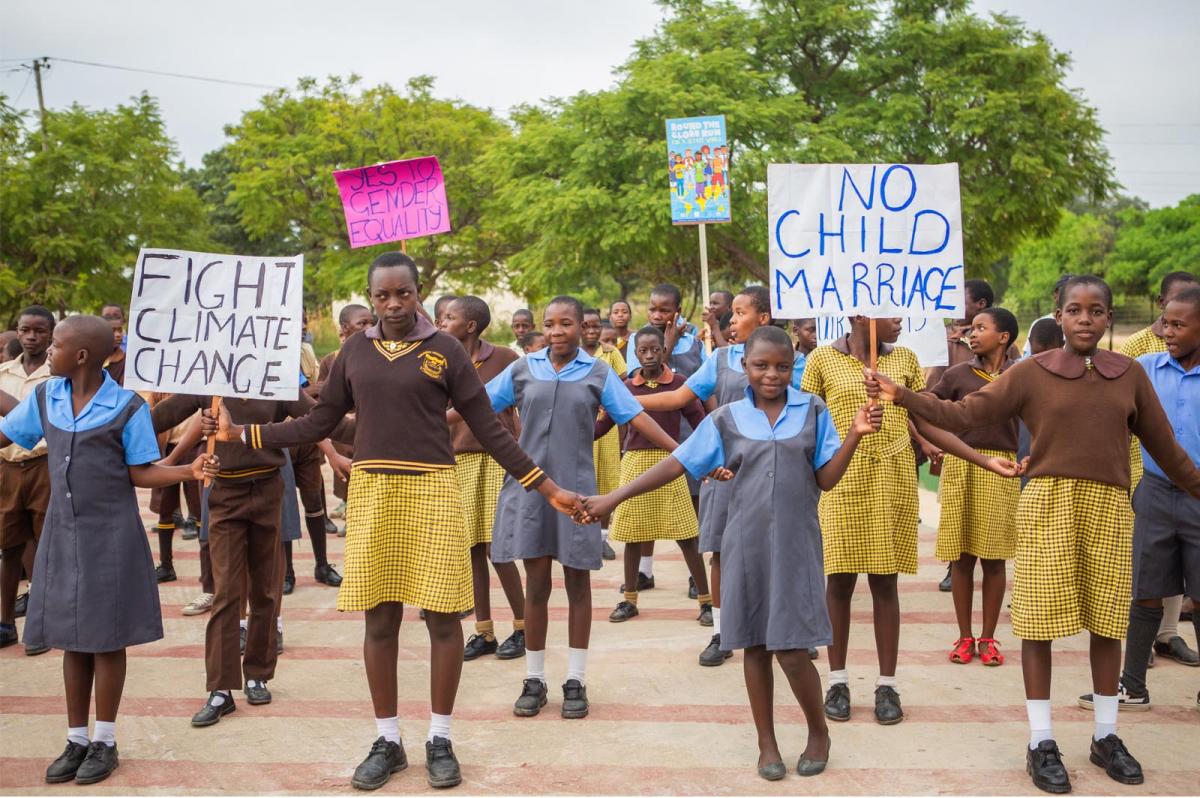
Children in Zimbabwe making their voices heard about things that are important to them, like fighting climate change and putting a stop to child marriage.
You and all other children have your own rights until you turn 18. It is the United Nations Convention on the Rights of the Child that gives you these rights. Your country* has ratified (promised to follow) the rules set out in the Convention. They must always put children's best interests first, and listen to what you have to say.
What is the United Nations?
The United Nations (UN) is a global forum, like a big meeting place where all countries come together to talk about serious problems, like how to stop wars and keep peace. The UN works to keep countries safe, make sure people's, not least children's, rights are respected, help people who need support, encourage everyone to take care of the planet, and make sure international rules and laws are followed.
What is a convention?
A convention is an international agreement, a contract between the countries of the world. The Convention on the Rights of the Child is one of the nine UN conventions on human rights. The UN adopted the Convention on the Rights of the Child on 20 November 1989. A day to celebrate!
*The United States is the only member state of the United Nations that has signed but not ratified the Convention on the Rights of the Child.
Below you'll find some simplified excerpts from the Convention. It consists of 42 paragraphs, called articles, about all the different parts of a child's life.
- All children are equal and have the same rights.
- Every child has the right to have his or her basic needs fulfilled.
- Every child has the right to protection from abuse and exploitation.
- Every child has the right to express his or her opinion and to be respected.
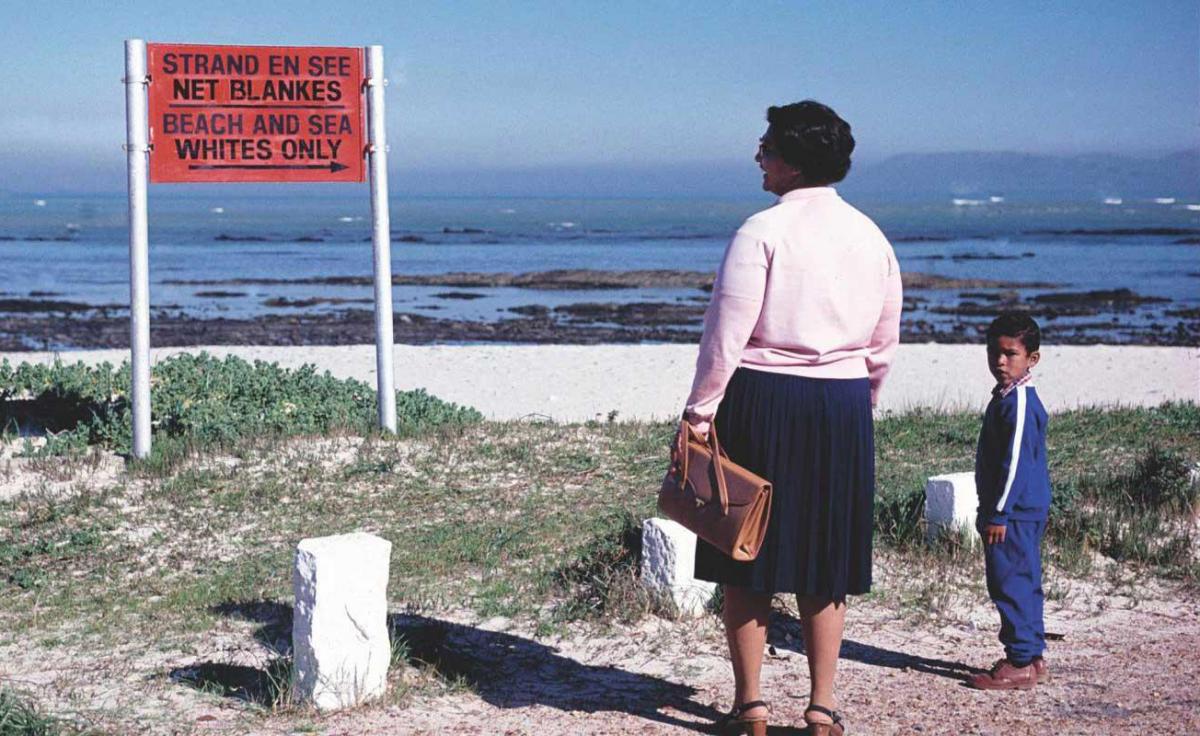
Throughout history, many countries in the world have treated people differently because of everything from their faith to the colour of their skin. One example is the apartheid system in South Africa, as seen here.
Every child under 18, anywhere in the world, has the rights outlined in the UN Convention on the Rights of the Child.
All children have equal rights. No one should treat you unfairly because of how you look, your skin color, gender, language, religion, or beliefs.
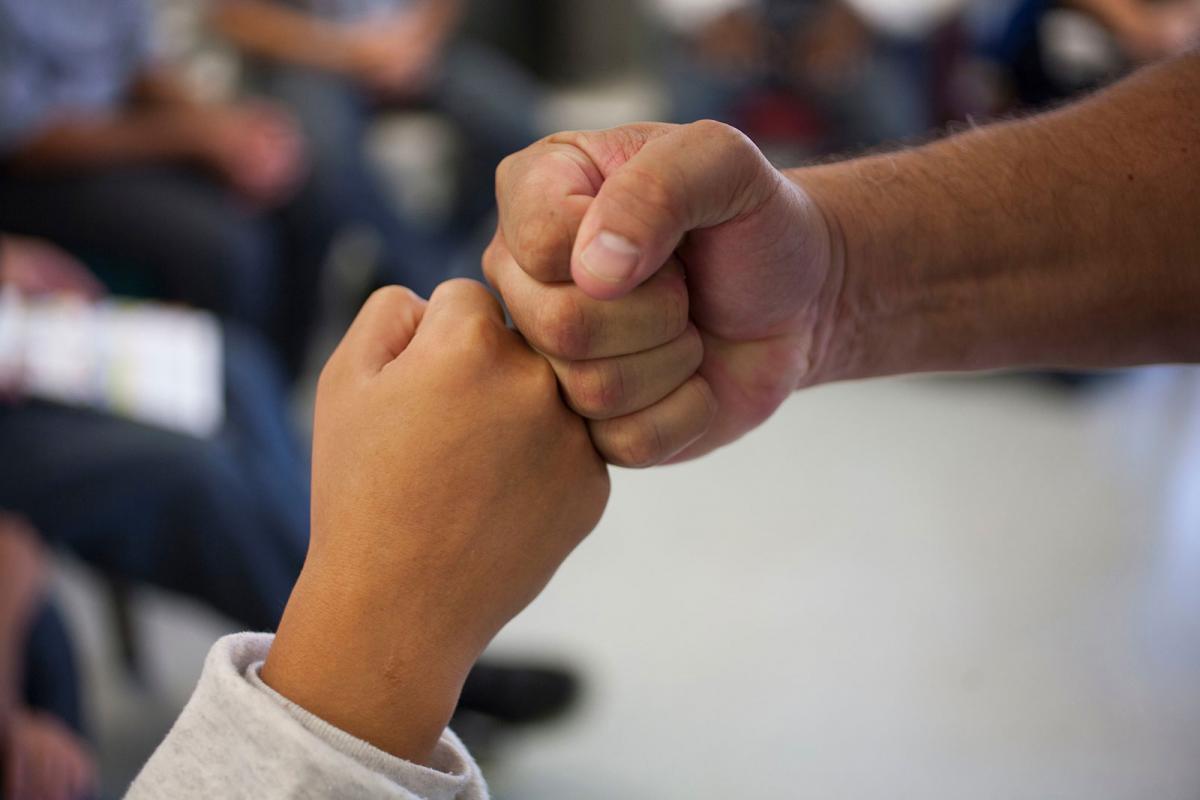
Adults should always put children first.
When adults decide things, they must think about what's best for children. This includes politicians, authorities such as the police, social services and courts.
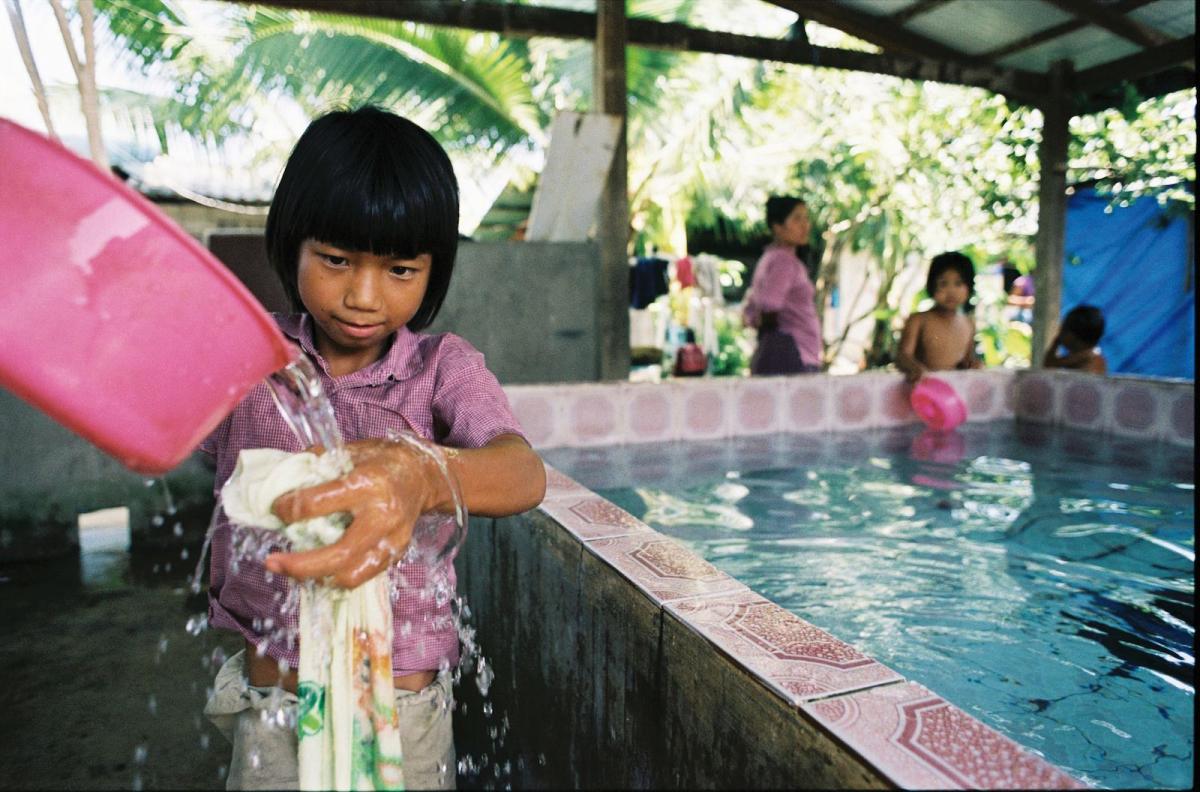
This refugee girl in Thailand has access to clean water which helps her survive and grow.
You have the right to survive, live fully and grow into who you want to be.
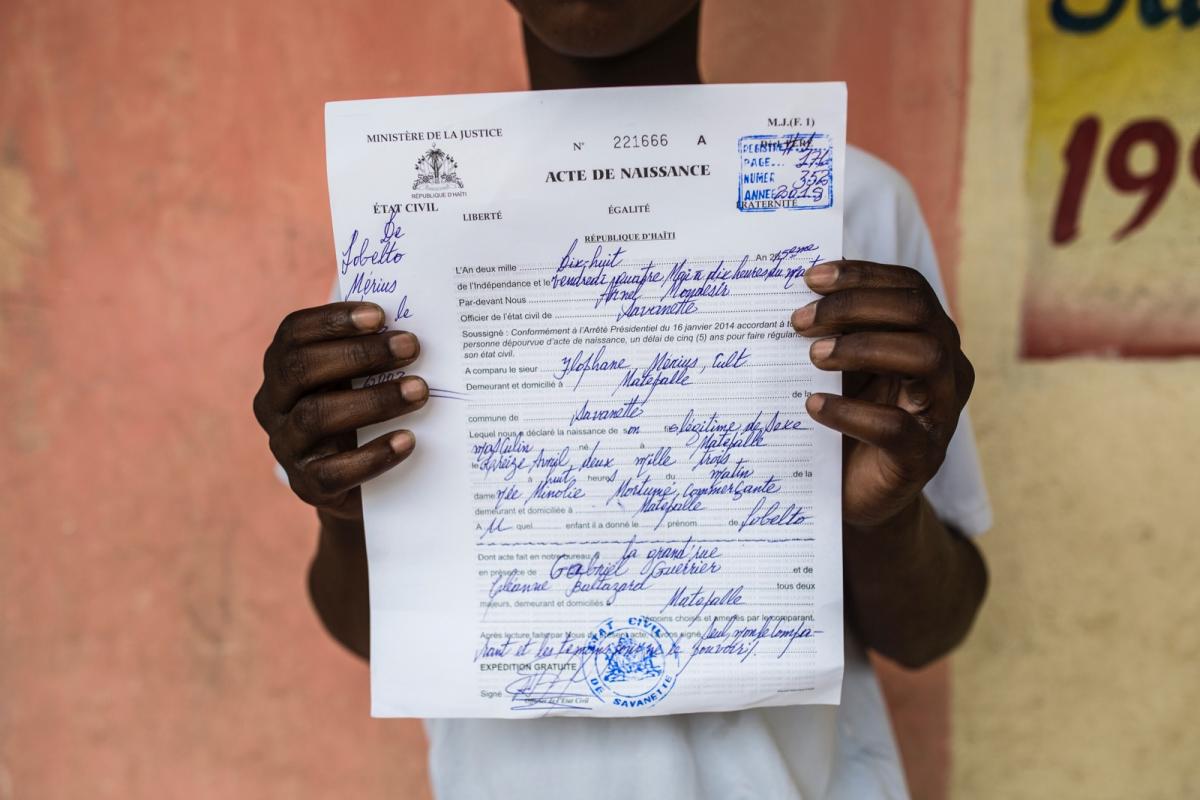
Roberto, 15 from Haiti, has finally been given a birth certificate. Now he can finally move freely in his country and go to school. He has proof that he exists! "I don't have to worry about being expelled from the school anymore! It feels really good".
You have the right to a name and to citizenship, belonging to a country.
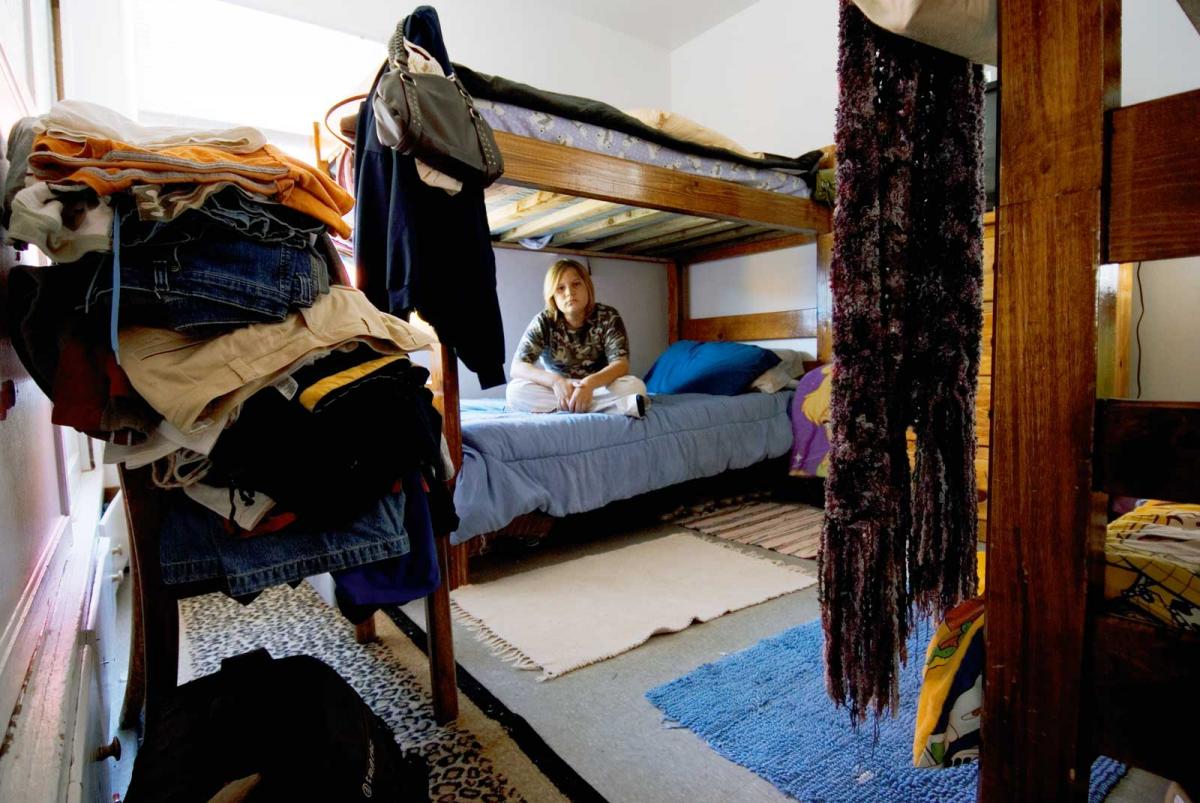
This twelve-year-old boy has lived in a homeless shelter in Los Angeles, USA, with his family for over a year, after they could not live in their car anymore.
You have the right to live with your parents unless it's harmful. Your parents should take care of you if they can, and put your needs first.
Your voice matters. You have the right to share your thoughts regarding things that affect you – at home, school, or with authorities.
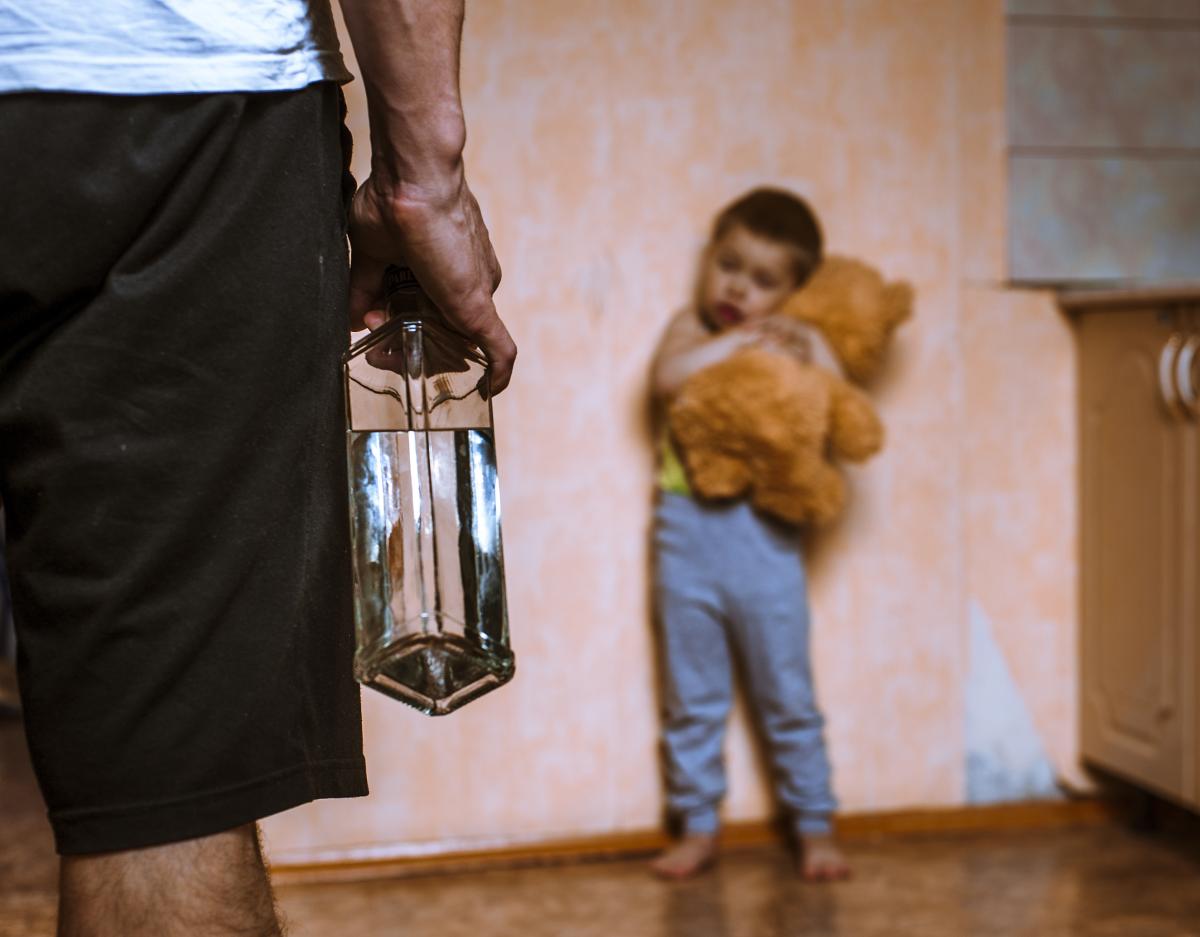
Children around the world face abuse in their own homes and in school.
You have the right to
protection from all forms of
violence, neglect, abuse and
mistreatment. You should
not be abused or exploited by your
parents, other guardians or any other people. Only 65 countries in the world (out of nearly 200) have banned all forms of physical and psychological violence and abuse against children.

Refugees from the war in Syria crying for help at a train station in Budapest, Hungary.
If you are a refugee, and have been forced to flee on your own or with your family, you have the right to protection and help. If you're alone in a new country, you should get help to find a safe home but also support to find your family. If you lose your family, you have the right to care and support.
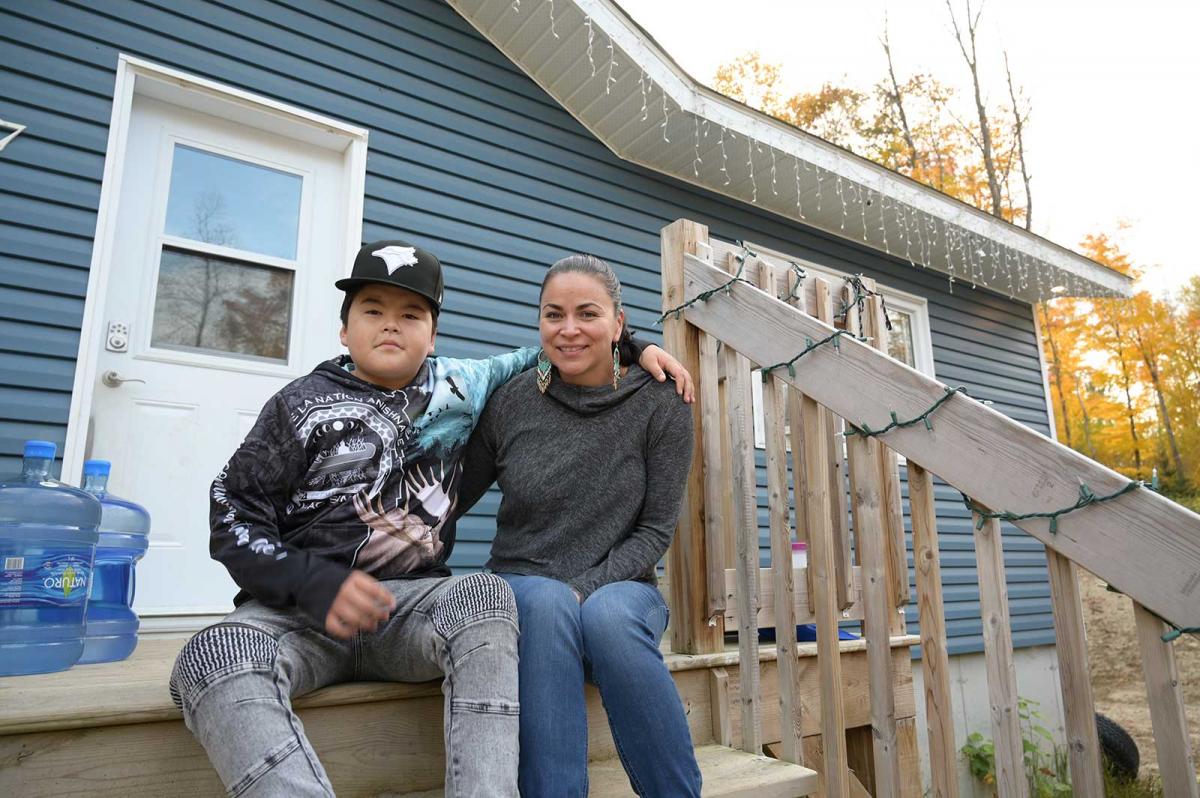
Odeshkan, 12, and his mother have to fetch clean drinking water far away from home. They and others in their small town in Canada belong to an Indigenous people and are protesting against the government because the tap water where they live is toxic.
Every child deserves a good life, with all basic necessities met. That includes, for example, clean drinking water and enough food to eat every day. If you have a disability, you should get extra support.
When you're unwell, you have the right to medical care and support.
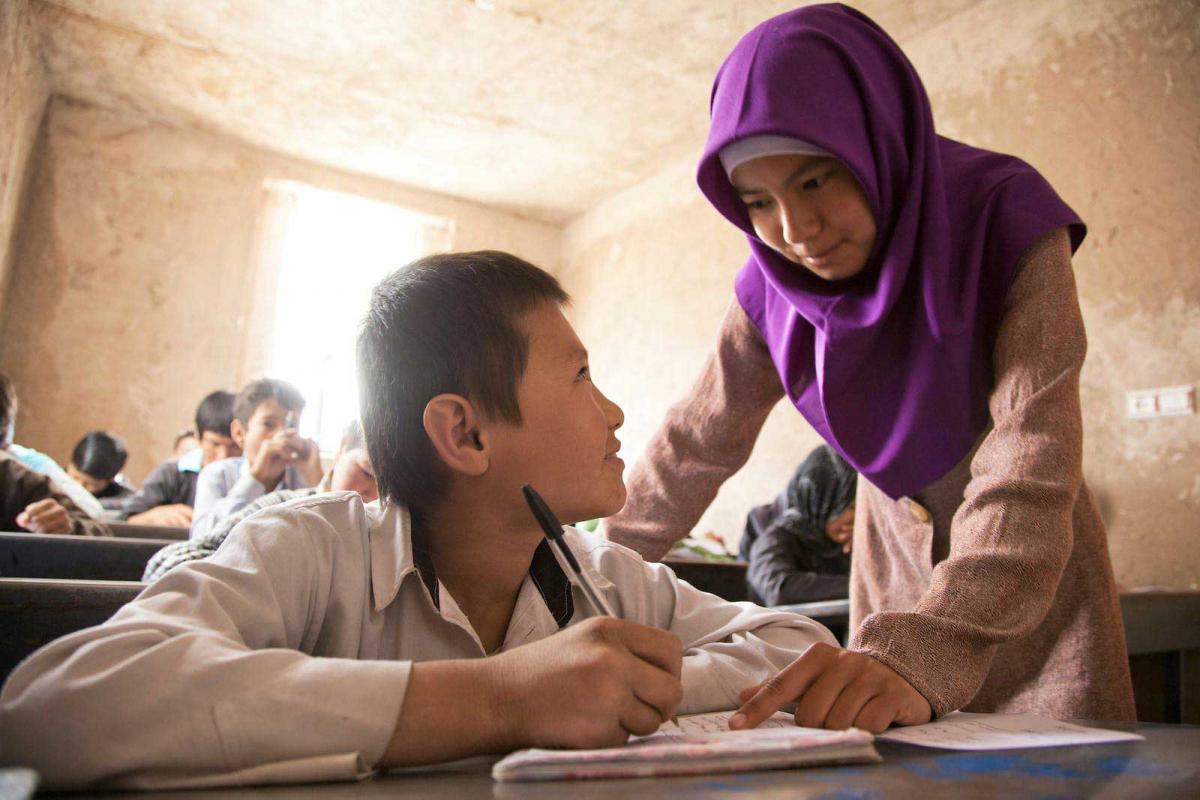
A teacher in Afghanistan helps her students understand a mathematical problem.
You have the right to go to
school and to learn about
important things, including
respect for human rights,
your own and other cultures,
and the equal value of all
people.

Tibetan children living in exile in India traditionally greet each other.
Your beliefs and thoughts are important. If you belong to a minority group, or an indigenous people, you have the right to speak your language, and practice your culture and faith.

Playing helps these soccer fans in Guinea-Bissau feel good, grow and develop.
Playtime, rest, and a healthy environment are important rights too, that strengthen children's development and well-being.
You shouldn't have to work in dangerous conditions that can be harmful to your health or do work that stops you from going to school.
You should never be kidnapped or sold, and no one should harm you or force you into commercial sexual exploitation. If something bad happens, you deserve protection and help.
No one is ever allowed to punish you cruelly or hurtfully.
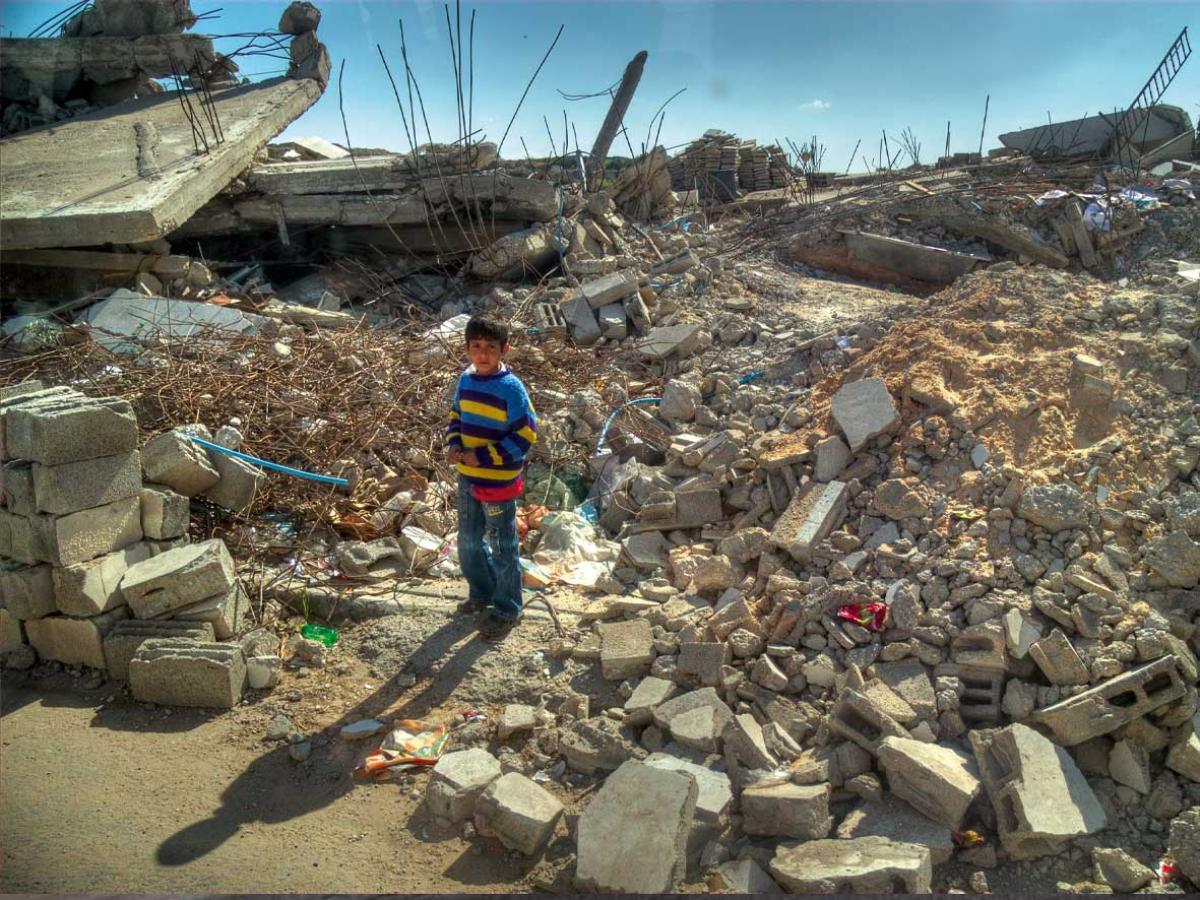
A Palestinian boy stands in the ruins of his home in Gaza after airstrikes in 2009.
You should never have to be a soldier or be involved in or affected by warfare/armed conflict.
You have the right to information and knowledge about your rights, according to the UN Convention on the Rights of the Child. Parents, guardians, and other adults should also be well-informed about this convention to put children first.
- All children are equal and have the same rights.
- Every child has the right to have his or her basic needs fulfilled.
- Every child has the right to protection from abuse and exploitation.
- Every child has the right to express his or her opinion and to be respected.

Throughout history, many countries in the world have treated people differently because of everything from their faith to the colour of their skin. One example is the apartheid system in South Africa, as seen here.
Every child under 18, anywhere in the world, has the rights outlined in the UN Convention on the Rights of the Child.
All children have equal rights. No one should treat you unfairly because of how you look, your skin color, gender, language, religion, or beliefs.

Adults should always put children first.
When adults decide things, they must think about what's best for children. This includes politicians, authorities such as the police, social services and courts.

This refugee girl in Thailand has access to clean water which helps her survive and grow.
You have the right to survive, live fully and grow into who you want to be.

Roberto, 15 from Haiti, has finally been given a birth certificate . Now he can finally move freely in his country and go to school. He has proof that he exists! "I don't have to worry about being expelled from the school anymore! It feels really good".
You have the right to a name and to citizenship, belonging to a country.

This twelve-year-old boy has lived in a homeless shelter in Los Angeles, USA, with his family for over a year, after they could not live in their car anymore.
You have the right to live with your parents, unless it's harmful. Your parents should take care of you if they can, and put your needs first.
Your voice matters. You have the right to share your thoughts regarding things that affect you – at home, school, or with authorities.

Children around the world face abuse in their own homes and in school.
You have the right to
protection from all forms of
violence, neglect, abuse and
mistreatment. You should
not be abused or exploited by your
parents, other guardians or any other people. Only 65 countries in the world (out of nearly 200) have banned all forms of physical and psychological violence and abuse against children.

Refugees from the war in Syria crying for help at a train station in Budapest, Hungary.
If you are a refugee, you have
the right to protection and
assistance. If you have been forced to flee, on your own or with your family, you have the right to protection and help. If you're alone in a new country, you should get help to find a safe home, but also support to find your family. If you lose your family, you have the right to care and support.

Odeshkan, 12 and his mother have to fetch clean drinking water far away from home. They and others in their small town in Canada belong to an indigenous people, and are protesting gainst the government because the tap water where they live is toxic.
Every child deserves a good life, with all basic necessities met. That includes, for example, clean drinking water and enough food to eat every day. If you have a disability, you should get extra support.
When you're unwell, you have the right to medical care and support.

A teacher in Afghanistan helps her student understand a mathematical problem.
You have the right to go to
school and to learn about
important things, including
respect for human rights,
your own and other cultures,
and the equal value of all
people.

Tibetan children living in exile in India geet each other in a traditional manner.
Your beliefs and thoughts are important. If you belong to a minority group, or an indigenous people, you have the right to speak your language, and practice your culture and faith.

Playing helps these soccer fans in Guinea-Bissau feel good, grow and develop.
Playtime, rest, and a healthy environment are important rights too, that strengthen children's development and well-being.
You shouldn't have to work in dangerous conditions that can be harmful to your health, or do work that stops you from going to school.
You should never be kidnapped or sold, and no one should harm you or force you into commercial sexual exploitation. If something bad happens, you deserve protection and help.
No one is ever allowed to punish you in a cruel or hurtful way.

A palestinian boy stands in the ruins of his home in Gaza after airstrikes in 2009.
You should never have to be a soldier or be involved in or affected by warfare/armed conflict.
You have the right to information and knowledge about your rights, according to the UN Convention on the Rights of the Child. Parents, guardians, and other adults should also be well-informed about this convention to put children first.